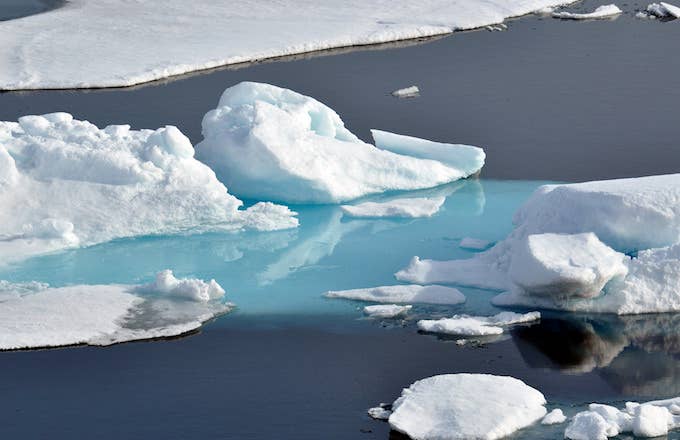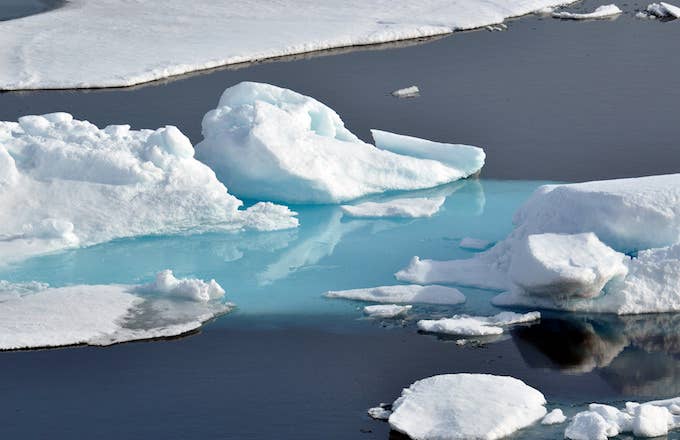
The Arctic is currently experiencing unprecedented high temperatures, and a new report warns that the implications of that unusual phenomenon could be catastrophic.
Right now, the Arctic region is 36 degrees warmer than usual and sea ice is at a record low. Winter has arrived at the Arctic, and that typically means the sun disappears from the region, temperatures drop, and sea ice grows thick over the North Pole. But due to a strange pattern in the jet stream, the air current that affects the climate of the northern hemisphere, a patch of polar air is currently stuck over Russia’s Siberian region and the Arctic is abnormally warm.
Scientists are worried that this warmth may have a devastating global impact, according to the new Arctic Resilience Report, the culmination of years of research done by 11 scientific organizations. The melting polar ice cap could trigger what they call “tipping points” that could have irreversible effects on the climate around the globe.
The tipping points, the report says, include phenomena like vegetation growth on tundra, which could make the region warmer for longer periods of time; higher levels of the greenhouse gas methane; destroyed marine ecosystems; and global climate pattern changes that could affect monsoons in Asia. These tipping points would make it impossible for the Arctic to recover and would affect not only the vulnerable residents of the region, but communities around the globe.
Meanwhile, President-elect Trump has vowed to remove many regulations put forward in the U.S. meant to temper climate change and to remove funding from climate research programs. He also infamously tweeted that he doesn’t believe climate change is anything more than a hoax.
Nevertheless, the scientific community is in consensus that not only is climate change real, but it’s becoming increasingly likely we will begin to feel its effects more and more in our lifetime. For people in vulnerable regions like the Arctic, it could soon be a struggle to survive.

